
월가는 COVID-19 코로나바이러스 발생으로 촉발된 약세장을 성공적으로 이겨냈습니다. 그러나 미국의 경제 회복은 아직 완전한 것이 아니며 바이러스는 계속해서 전국적으로 파산 신청을 유도하고 있습니다.
투자 은행 Jefferies의 연구에 따르면 2020년 7월과 8월 사이에 대기업 파산이 전년 대비 3배 이상 증가했으며 8월 말까지 대기업 파산이 2배 이상 증가한 것으로 나타났습니다. 2020년 말까지 미국의 기업 파산은 10년 만에 최고치를 기록했습니다.
2021년은 강화된 백신 접종을 기반으로 구축된 경제 회복 덕분에 그렇게 나쁘지 않았습니다. S&P Global은 올해 4월 30일까지 183건이 2020년 현재까지 207건보다 적었다고 밝혔습니다. 하지만 코로나19가 대가를 치르고 있음이 분명합니다.
많은 경우 코로나바이러스는 단순히 낙타의 등을 부러뜨린 지푸라기일 뿐입니다. 특히 소매 산업은 지난 1년 동안 참담한 상황을 견뎠습니다. 이러한 체인 중 상당수는 이미 부채로 과중했으며 취향의 변화와 미국인의 전자 상거래 채택이 급증함에 따라 장기적인 쇠퇴를 겪고 있었고 마침내 한계를 넘었습니다.
그러나 파산의 폭발은 소매에만 국한되지 않았습니다. COVID-19로 인해 여러 산업 분야의 기업이 챕터 11 파산 보호 및 기타 유형의 구제책을 찾아야 했습니다. 2014-16년의 유가 하락으로 여러 탐사 및 생산 회사가 약화된 에너지 부문은 코로나바이러스로 인한 석유 수요 침체가 여러 사례에서 일을 끝내는 것을 보았습니다. 레스토랑 및 엔터테인먼트 산업에서 재정적으로 흔들리는 몇몇 회사들도 파산했습니다.
기억하십시오:파산 신청이 항상 "끝"이 되는 것은 아닙니다.
많은 경우에 11장 구조조정 및 기타 책략은 회사가 상당한 부채를 탕감하여 새로운 길을 모색하면서 계속 운영할 수 있도록 돕습니다. 실제로, 이 목록에 대한 가장 최근 업데이트에는 2020년에 챕터 11 파산 보호를 신청했지만 이후 두 번째 종신 임대로 등장한 많은 회사가 포함됩니다.
파산 신청이 코로나19 발병과 관련이 있는 32개 회사가 있습니다. 대부분의 경우 이러한 사업체는 이미 재정적 압박의 징후를 보이고 있었습니다. 코로나바이러스는 단순히 손을 내밀었을 뿐입니다. 다행히도 이러한 기업 중 일부는 파산이 끝이 아니었습니다.
<소>파산 신청일 현재 직원 수 및 위치. 다른 모든 데이터는 달리 명시되지 않는 한 7월 26일 기준입니다.
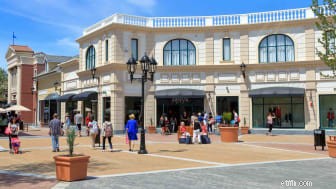
워싱턴 프라임 그룹 (WPG, $1.65) 쇼핑 센터 부동산 투자 신탁(REIT)은 스스로를 "소매 자산의 소유, 관리, 취득 및 개발 분야에서 인정받는 리더"라고 설명합니다. 회사는 자사의 건물이 매년 4억 명 이상의 방문객을 유치한다고 말합니다.
그러나 2020년은 평년과 다름없었고 손님도 급감했습니다.
팬데믹은 일시적인 쇼핑몰과 상점 폐쇄를 강요했고 쇼핑객을 집에 머물게 했습니다. 소매상들은 임대료 감면을 요구했고 일부는 완전히 문을 닫았습니다. 이는 결국 WPG와 같은 소매점 소유주에게 압력을 가합니다.
Washington Prime Group은 6월 13일 챕터 11 파산 보호를 신청했습니다. WPG의 부채 중 9억 5000만 달러가 재구성되는 반면 채권단은 파산 절차 중에 회사를 운영할 수 있도록 1억 달러의 자금 조달에 동의했습니다.
조직이 개편됨에 따라 Washington Prime은 평소와 같이 영업할 것이라고 밝혔습니다.
WPG는 "회사는 손님, 세입자, 공급업체, 이해 관계자 및 동료의 이익을 위해 정상적인 과정으로 운영이 계속될 것으로 기대합니다."라고 말합니다.

문서 출처 1983년에 설립된 연하장, 초대장, 선물 포장, 종이 공예 키트, 공예 용품 및 관련 제품을 판매합니다. 팬데믹 기간 동안 대부분의 매장이 일시적으로 문을 닫아 소매업체에 압박을 가했습니다.
이 회사는 집주인에게 임대료 인상을 요구하고 공급업체와 지불 기간을 연장한 것으로 알려졌다. 그러나 1억 달러가 넘는 부채와 3,600만 달러의 연간 임대 비용으로 Paper Source는 챕터 11 파산 보호를 신청해야 했습니다. 계획은 11개 매장을 폐쇄하고 나머지 위치와 전자 상거래 운영은 계속 운영하는 것이었습니다.
지난 5월 Barnes &Noble을 소유한 Elliott Investment Management는 Paper Source를 인수하여 Chapter 11을 종료하는 데 필요한 자금을 제공할 것이라고 말했습니다.
많은 소매 파산을 전염병으로 돌릴 수 있지만, 이번 파산은 광학 상태가 좋지 않다는 점에서 두드러졌습니다.
수십 개의 연하장 공급업체에서 Paper Source가 서류 제출 직전에 비정상적으로 많은 주문(일부는 정상 크기의 4배)을 주문했다고 보고했습니다. 또한 팬데믹 기간 동안 회사 경영진은 147만 달러의 보너스를 받았습니다. 파산 신청 후 회사 경영진은 수백 개의 소규모 공급업체가 급여를 받지 못했음에도 불구하고 추가로 100만 달러의 보너스를 요구했습니다.
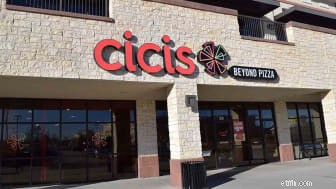
팬데믹 기간 동안 많은 피자 체인점이 번성했습니다. 피자는 항상 인기 있는 테이크아웃 옵션이었으며 이미 배달을 전문으로 하는 많은 피자 체인이 있어 폐쇄에 완벽한 위치에 있었습니다.
Cici의 달랐다. 텍사스에 기반을 둔 체인은 피자 뷔페 레스토랑입니다. 그리고 좌식 레스토랑이 어려움을 겪고 있는 동안 뷔페 스타일의 식당은 많은 사람들이 회복하지 못할 정도로 압박을 받았습니다.
COVID-19는 체인에 치명적인 것으로 판명되었습니다. 모회사인 Cici's Holdings는 2020년에 매출이 50% 이상 감소했습니다. 팬데믹의 "예측할 수 없고 전례 없는 규모"를 인용하여 회사는 1월 25일 5천만 달러에서 1억 달러 사이의 부채를 짊어지고 챕터 11 파산 보호를 신청했습니다. .
동시에, 작년 12월 Cici의 부채를 인수한 D&G Investors는 자기자본으로 Cici를 인수할 것이라고 밝혔습니다. Cici's는 2021년 3월 11장에서 빠르게 등장했습니다.

미네소타 기반 Christopher &Banks 대유행으로 인해 파산한 의류 소매업체의 긴 목록에 합류했습니다.
여성 의류 회사는 1월 14일 "팬데믹과 지속적인 영향으로 인한 재정적 어려움"의 결과로 11장 파산 보호에 들어갔다. Christopher &Banks는 쇼핑몰에서 유동인구가 부족한 상황에 직면했습니다. 하지만 많은 사람들이 재택근무를 시작하면서 보다 캐주얼한 옷을 입게 되면서 어려움을 겪었습니다.
구매자를 찾을 수 없었던 이 회사는 1월에 44개에 걸쳐 400개 매장을 폐쇄할 계획이라고 밝혔습니다. 그러나 3월에 연방 파산 법원은 전자 상거래 사업을 ALCC의 계열사인 ALCC에 양도하는 1,270만 달러를 승인했습니다. Hilco 가맹점 리소스. 비품을 포함한 매장 폐쇄 판매(좋은 징조는 아님)가 즉시 시작되었습니다.

휴스턴 소재 FHC Holdings (FRANQ, $0.20) Francesca's의 부모는 12월 3일에 Chapter 11 파산 보호를 신청했습니다. 부티크 여성 의류 판매자는 몇 년 동안 어려움을 겪었지만 전염병은 극복할 수 없는 것으로 판명되었습니다. 매장의 절반이 쇼핑몰에 위치하여 매장량이 대폭 감소하고 유동인구가 크게 감소하여 Francesca의 1분기 매출은 50% 감소했습니다.
이 회사는 온라인 판매를 따라잡기 위해 노력하고 있으며 18-35세의 젊은 인구층을 대상으로 마케팅을 진행하고 있습니다. 또한 거의 3,700만 달러의 임대료 지불을 연기했습니다. 이 중 어느 것도 피할 수 없는 것을 피하기에 충분하지 않았습니다. 12월에 회사는 700개 매장 중 140개 매장을 폐쇄할 계획이라고 밝혔습니다. 나중에 폐쇄 목록에 97개의 매장을 추가했습니다.
2월 초 Francesca's는 TerraMar Capital, Tiger Capital Group 및 SB360 Capital Group으로 구성된 그룹에 1,800만 달러에 매각되었습니다. 새로운 2,500만 달러 자산 기반 회전 신용 시설을 통해 Francesca는 전자 상거래 비즈니스 및 휴스턴 본사와 함께 최소 275개의 부티크를 계속 운영할 계획입니다.
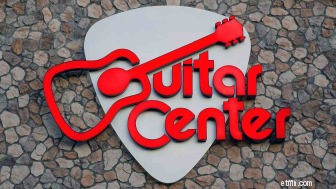
미국 최대의 악기 소매업체인 Guitar Center는 2020년 11월 21일에 11장 파산 보호를 신청했습니다.
1959년에 설립된 Guitar Center는 269개의 소매점을 운영하고 있으며, 대부분이 쇼핑몰에 있습니다. 이 회사는 2019년에 흑자를 내고 23억 달러의 매출을 보고했지만 3월, 4월, 5월에 매장 판매가 "폭락"했다고 보고했습니다. 그들은 결코 완전히 회복되지 않았습니다. 온라인 판매가 손실된 수익을 만회하는 데 도움이 되었음에도 불구하고 판매는 여전히 2019년에 비해 거의 20% 감소했습니다.
2014년 사모펀드 인수로 남은 부채까지 합치면 회사의 IOU가 13억 달러로 증가했습니다.
Guitar Center는 챕터 11 파산 보호에서 빠르게 벗어났지만 12월 17일 승인된 재구성 계획을 발표했습니다. 이 계획은 8억 달러 이상의 부채를 청산했습니다.

부동산 투자 신탁 CBL &Associates Properties (CBLAQ, $0.13) 11월 1일에 챕터 11 파산 보호를 신청했습니다. 오프라인 소매점을 휩쓴 대유행은 100개 이상의 쇼핑몰을 소유하거나 공유하는 회사에도 나쁜 소식입니다. JCPenney와 같은 앵커 세입자가 파산하고 다른 세입자가 임대료를 지불할 수 없게 되자 CBL Properties는 투자자들에게 문제가 있다고 경고하기 시작했습니다.
파산 신청에서 CBL 속성은 약 14억 달러의 부채를 없애는 대가로 무담보 채권 보유자에게 회사 지분 90%를 제공하는 거래를 제안했습니다.
4월에 블룸버그는 "CBL &Associates Properties Inc.가 주요 대출 기관과의 합의를 포함하는 수정된 11장 계획을 제출하여 쇼핑몰 운영자가 조직 개편에 대한 법원 승인에 한 걸음 더 다가가게 했습니다"라고 보고했습니다.
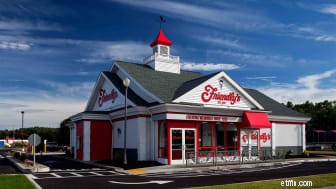
FIC 레스토랑 – 인기 있는 Friendly's 레스토랑 체인의 소유주이기도 한 이 회사는 비즈니스에 대한 "Covid-19의 치명적인 영향"을 인용하여 11월 1일 파산 보호를 위해 챕터 11을 신청했습니다.
아이코닉한 이스트 코스트 레스토랑과 아이스크림 체인은 2011년 이전에 챕터 11을 신청했으며 한때 850개까지 있던 위치가 있었지만 50개의 기업 소유 및 80개의 프랜차이즈 위치로 축소되었습니다. 이 회사는 팬데믹 중단 이전 2년 동안 턴어라운드에서 진전을 이뤘다고 합니다. 테이크아웃 사업을 성장시키고 있었지만 Friendly's는 주로 좌식 레스토랑이었기 때문에 특히 취약했습니다.
회사는 새로운 소유자에게 중단 없이 이전할 수 있도록 운영을 계속할 수 있는 충분한 현금을 보유하고 있으며 그 동안 모든 위치가 계속 열려 있다고 보고했습니다.
1월에 Friendly's는 Amici Partners Group에 200만 달러 미만에 매각되었습니다. Amici는 Friendly's를 계속 운영하여 메뉴(추가 아이스크림 옵션 포함)를 개선하고 레스토랑의 온라인 주문 기능을 강화할 계획입니다.
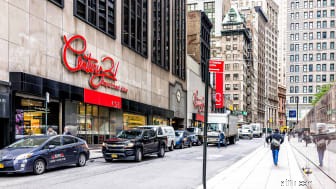
소매업체 Century 21 1961년 브루클린에서 설립되어 미국 북동부 전역에 13개 지점을 운영하고 있는 는 COVID가 압력을 가하기 전에 전자 상거래로의 전환으로 오랫동안 고군분투해 온 수많은 백화점 체인 중 하나입니다.
그러나 소매업체는 보험사가 Century 21이 신청한 사업 중단 보험금 1억 7,500만 달러 지급을 거부한 후 9월에 파산 보호 챕터 11을 신청하면서 마침내 수건을 던졌습니다.
CEO Raymond Gindi는 2001년 9월 11일 테러 공격의 여파로 받은 유사한 지불금을 언급하면서 "보험금이 9/11의 파괴적인 영향을 겪은 후 재건하는 데 도움이 되었습니다"라고 지적했습니다. 세계 무역 센터. 그러나 많은 비즈니스 중단 정책은 일반적으로 비즈니스에 직접적인 물리적 피해가 발생한 경우에만 손실을 보상하므로 코로나바이러스 관련 손실은 보상하지 않습니다.
이 경우 Century 21은 파산을 사용하여 재구성하지 않고 대신 "소매 운영을 중단"하고 나머지 위치를 폐쇄합니다.
역설적이게도 Century 21이 채권자에게 상환할 수 있도록 남겨둔 가장 가치 있는 자산은 COVID-19로 인한 사업 중단 보험 정책에 대한 1억 7,500만 달러 청구였습니다. 회사는 12월에 비공개 구매자에게 해당 주장을 판매했습니다.

플로리다에 기반을 둔 할인 백화점 체인 Stein Mart 1908년부터 사업을 시작했습니다. 그 당시 미시시피의 첫 매장에서 시작하여 30개 주에 걸쳐 확장되었습니다. 현재 279개 지점과 전자상거래 웹사이트를 운영하고 있습니다.
그러나 이 체인은 더 오래된 인구 통계를 구했습니다. 팬데믹 잠금이 해제되어 젊은 쇼핑객과 동일한 숫자로 매장으로 돌아가려고 서두르지 않은 사람입니다. 이 회사는 이미 2018년에 곤경에 처했고 민영화를 모색하고 있었지만 코로나바이러스 전염병이 치명적인 타격을 입혔습니다.
Stein Mart는 8월 12일 챕터 11 파산 신청을 했습니다. 회사는 청산 판매를 시작했으며 모든 오프라인 매장을 영구적으로 폐쇄할 것입니다.
12월에 REV(Retail Ecommerce Ventures)는 개인 상표 브랜드 및 고객 데이터를 포함한 Stein Mart의 지적 재산에 대해 600만 달러를 지불했습니다. REV는 어려움을 겪고 있는 브랜드를 구매하여 온라인 비즈니스를 위한 포지셔닝을 전문으로 합니다. 이 회사는 올해 초 Stein Mart를 온라인 전용 매장으로 재출시했습니다.
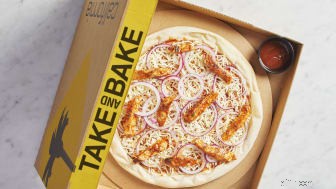
캘리포니아 피자 키친 는 1985년부터 신선한 제철 재료를 사용한 캘리포니아 스타일의 파이를 제공하고 있습니다. 비상장 체인은 그 이후로 많은 위기를 겪었지만 코로나바이러스 전염병으로 인해 일시적으로 매장을 폐쇄해야 하는 상황은 비참했습니다. 배달에 중점을 두는 다른 피자 체인과 달리 CPK는 매출의 80%를 레스토랑 내 식사에 의존합니다.
7월 30일 California Pizza Kitchen은 파산 보호 챕터 11을 신청한다고 발표했습니다. 일부 수익성이 없는 위치는 폐쇄되지만 회사는 계속 운영됩니다. 대부분의 CPK 레스토랑은 이제 야외 식사 및 배달을 위해 다시 문을 열었고 일부 식당도 열리기 시작했습니다. 이 회사는 또한 CPK Market을 통해 식사 키트, 음료 및 신선한 농산물을 판매하고 있습니다.
CEO Jim Hyatt는 파산 신청이 발표되었을 때 다음과 같이 말했습니다.
"COVID-19가 우리 운영에 미치는 전례 없는 영향은 분명히 추가적인 도전을 야기했지만, 우리 대출 기관의 이번 계약은 지속적인 사업으로서 CPK의 생존 가능성에 대한 그들의 약속을 보여줍니다. 이 과정에서 우리는 동일한 혁신적이고 캘리포니아에서 영감을 받은 요리를 계속 제공할 것입니다. 우리는 35년 넘게 봉사해 왔습니다."
11월에 California Pizza Kitchen은 파산 보호에서 벗어났다고 발표했습니다. 회사는 2억 2천만 달러의 부채를 탕감했으며 1억 7천 7백만 달러의 자본을 차입하여 새로운 "Cali 건강" 메뉴를 확장하고 집중할 수 있습니다. 단기 상환이 예정되어 있지 않기 때문에 California Pizza Kitchen은 다시 일어설 수 있는 숨을 쉴 수 있는 여유가 있습니다.

맞춤 브랜드라는 이름을 모를 수도 있습니다. , 하지만 Men's Warehouse, K&G Superstores, JoS를 포함하여 회사가 소유한 의류 소매업체 중 일부를 알고 있을 가능성이 있습니다. A. Bank, 캐나다 의류업체 Moore's Clothing for Men.
Tailored Brands는 2014년 JoS를 인수하면서 발생한 높은 부채 때문에 이미 곤경에 처했습니다. 은행. 코로나바이러스 팬데믹이 닥쳤을 때, 회사는 문을 닫은 매장의 이중 타격과 정장과 공식적인 작업복에 대한 수요를 쪼개는 재택 근무 추세에 직면했습니다. 그 결과 5월 2일에 끝나는 분기의 수익이 60% 이상 감소했습니다.
7월 23일, Tailored Brands는 챕터 11 파산 보호를 신청했습니다. 회사는 "우리가 일하는 방식을 지속적으로 평가하고 개선했지만 COVID-19는 우리가 더 적응하고 진화해야 한다는 것을 분명히 했습니다."라고 말했습니다.
Tailored Brands 주식은 8월에 상장폐지되었습니다. 12월에는 비상장 기업으로 성공적으로 구조조정을 했다고 발표했고, 2월에는 새로운 "Next Gen" 남성 창고 매장을 열기 시작했습니다. 3월 5일에 회사는 더 많은 차세대 매장을 여는 것을 포함하여 전략적 계획을 계속 발전시키기 위해 7,500만 달러의 자금 조달을 마감했다고 발표했습니다.
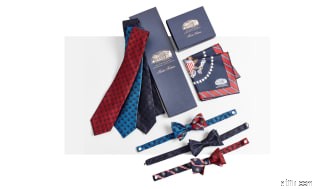
1818년에 설립된 고급 의류 소매업체 Brooks Brothers 미국 대통령 45명 중 40명에게 옷을 입혔다고 자랑했다. 브룩스 브라더스는 남북 전쟁, 1차 세계 대전, 대공황, 2차 세계 대전에서 살아남았지만 COVID-19 대유행은 너무 많은 것으로 판명되었습니다. 회사는 7월 20일 파산 보호를 신청했습니다.
미국에서 실제로 제품의 일부를 실제로 생산하는 마지막 남은 의류 브랜드 중 하나인 개인 소유 회사(뉴욕, 매사추세츠 및 노스캐롤라이나에 시설 있음)는 대유행 이전에 자체 판매를 고려하고 있었습니다. 비즈니스 캐주얼은 유행에서 벗어났고 임대료는 높았으며 Macy's(M)와 같은 백화점 고객은 어려움을 겪고 있었습니다.
그러나 팬데믹은 매장을 폐쇄하고 "애슬레저" 의류로의 이동을 가속화했을 뿐만 아니라 잠재적인 판매를 방해했습니다.
회사는 "전략적 검토 과정에서 코로나19가 우리 사업에 막대한 지장을 초래했고 큰 타격을 입혔다"고 씁니다.
2020년 9월 Brooks Brothers는 SPARC Group이라는 운영 회사를 통해 쇼핑몰 운영자인 Simon Property Group(SPG)과 라이선스 회사인 Authentic Brands Group에 3억 2,500만 달러에 매각되었습니다. 거래의 일환으로 구매자는 125개의 Brooks Brothers 소매점을 계속 운영하는 데 동의했습니다. SPARC Group은 도매, 소매 및 전자 상거래를 포함한 Brooks Brothers의 모든 운영을 관리하게 됩니다.

쉬르 라 테이블 , 고급 주방용품 및 매장 내 요리 강습을 전문으로 하는 비상장 소매업체는 7월 8일에 챕터 11 파산을 선언했습니다.
회사의 121개 미국 매장이 문을 닫았고 파산 신청은 "COVID-19 위기의 재정적 영향의 결과"라고 회사는 설명했습니다. 위치가 다시 문을 열기 시작했지만 비즈니스를 되돌리기에는 너무 늦었습니다.
당시 Sur La Table은 51개 지점을 영구적으로 폐쇄할 계획이라고 밝혔습니다. 그리고 6월에 회사 직원의 20%가 영구 해고되었습니다.
8월에 Sur La Table은 Marquee Brands와 CSC Generation 간의 파트너십을 통해 거의 9천만 달러에 인수되었습니다. 9월에는 총 73개의 매장이 문을 닫을 것이라고 발표했으며 새 소유주는 계속해서 55개의 매장을 운영하고 있습니다.

셰일 프래킹 천연 가스 개척자 Chesapeake Energy (CHK, $55.18) 마침내 팬데믹의 추가적 부담으로 파산하여 6월 28일 파산 보호를 위한 챕터 11을 신청했습니다.
Chesapeake는 낮은 천연 가스 가격과 2019년 말 기준 95억 달러의 엄청난 부채로 어려움을 겪고 있습니다. 2월부터 시작된 천연 가스 가격 폭락과 함께 공장 폐쇄로 연료 수요 감소도 너무 큰 것으로 판명되었습니다. Chesapeake가 극복해야 할 많은 것. 2020년 1분기에 회사는 83억 달러의 손실을 보았고 3월 말까지 현금 8,200만 달러로 감소했습니다.
Chesapeake의 CEO는 회사를 구조 조정하기 위한 전략을 설명했습니다. 주로 회사를 끌어내리는 누적 부채를 줄이는 것입니다.
"약 70억 달러의 부채를 탕감하고 우리의 성과를 저해한 기존 계약상의 의무를 해결함으로써 우리는 Chesapeake가 다양한 운영 플랫폼과 자본 및 운영 효율성 및 기술적 우수성을 개선한 입증된 실적을 활용하도록 포지셔닝하고 있습니다. 이러한 입증된 강점을 통해, 적절한 규모의 자본 구조 덕분에 Chesapeake는 11장 프로세스에서 더욱 강력하고 경쟁력 있는 기업으로 부상할 수 있는 독보적인 위치에 놓이게 될 것입니다."
2월에 Chesapeake Energy는 직원의 15%(220명)를 해고하고 기존 부채 77억 달러를 탕감하고 새로운 부채 10억 달러를 조달한 후 챕터 11 파산 보호를 종료했습니다. 회사는 루이지애나와 북동부의 천연 가스전을 중심으로 석유 생산량을 감소시킬 계획이라고 밝혔습니다. 또한 연간 4억 달러의 잉여 현금 흐름을 창출할 수 있는 새로운 프로젝트에 연간 7억 달러에서 7억 5천만 달러를 지출하는 것을 목표로 하고 있습니다.

CEC 엔터테인먼트 – 피자 및 어린이용 엔터테인먼트 레스토랑 체인인 Chuck E. Cheese의 모회사로 가장 잘 알려져 있으며, 6월 25일 파산 보호를 위해 챕터 11을 신청했습니다.
코로나 바이러스 전염병은 회사의 비즈니스에 극적인 영향을 미쳤습니다. 3월로 끝나는 분기는 일반적으로 회사에서 가장 바쁜 시기이지만 동일 매장 매출은 전년 대비 21.9% 감소했습니다. 테이크아웃 피자를 제공하는 Peter Piper 체인에도 CEC Entertainment는 폐업으로 인한 비즈니스 손실을 극복할 수 없었습니다.
그러나 12월 30일 CEC Entertainment는 파산 보호에서 벗어났다고 발표했습니다. 절차가 끝난 후 회사는 7억 5백만 달러의 부채를 청산하고 1억 달러 이상의 유동성을 자랑했습니다.
CEC Entertainment는 "안전한" 한 식당 위치를 계속해서 다시 열 계획입니다.

사업 85년 후 GNC Holdings 지난 6월 파산보호를 신청해야 했다. 회사의 주식은 뉴욕 증권 거래소에서 상장 폐지되었지만 2013년 최고점의 60달러 수준에 비해 주당 44센트에 거래되고 있습니다.
GNC는 팬데믹이 닥치기 전에 이미 곤경에 처해 있었습니다. 비타민 및 건강 보조 식품 회사는 지난 12월 투자자들에게 쇼핑몰의 트래픽 감소를 이유로 2020년 말까지 900개 매장을 폐쇄할 계획이라고 말했습니다. 코로나바이러스 잠금 기간 동안 매장을 일시적으로 폐쇄해야 하는 것이 결정적인 타격이었습니다. 1분기 손실은 2억 달러에 이르렀고 회사의 부채는 거의 9억 달러입니다.
Under its reorganization plan, GNC said that between 800 and 1,200 stores would be permanently closed as it used Chapter 11 to "to right-size store portfolio and improve its capital structure." Remaining GNC retail stores and the company's e-commerce site stayed open during the process.
In September, a federal bankruptcy court judge approved the sale of GNC to China's Harbin Pharmaceutical (GNC's largest shareholder) for $770 million. The sale had raised national security concerns but ultimately was approved. Underperforming stores were to be shuttered, but the company was expected to keep 1,400 GNC retail locations open.

Hertz Global Holdings (HTZZ, $15.00) filed for Chapter 11 bankruptcy protection on May 22. The 102-year-old car rental company was decimated when the coronavirus pandemic all but shut down travel. That capped four years of losses that already had Hertz on shaky ground.
Explaining that "no business is built for zero revenue," the company threw in the towel after its lenders were unwilling to extend the deadline for payments on car leases. At this point, the company was $18.8 billion in debt and had already laid off 12,000 workers – with another 4,000 on furlough.
Hertz continued operations as it restructures. Besides layoffs, the company sold off many of its 568,000 vehicles to raise cash and cut costs.
In the meanstwhile, Hertz shareholders had a wild ride. After its bankruptcy filing, Hertz stock got caught up in Reddit/Robinhood-fueled trading. At one point, the company was planning to issue $500 million in stock to take advantage of soaring share prices – a plan that was eventually cancelled after conversation with the SEC. In October, the company secured $1.65 billion in financing, giving it the capital to buy new vehicles – a move that sent the stock to a near doubler. Then on Nov. 5, the company announced it had landed another $4 billion for fleet financing.
Fast forward to March of this year, and Hertz received a $4.2 billion buyout bid from Knighthead Capital Management and Centares Management, which it accepted in May. HTZGQ shares jumped nearly 70% on the news – a rare payout for shareholders in a bankrupt company.

Apex Parks Group is a privately held operator of water parks and family entertainment centers in California, Florida and New Jersey.
Apex Parks already was struggling thanks to competition and consolidation in the industry. However, the coronavirus pandemic hit just in time to disrupt prime spring break and summer vacation business. Facing park closures because of the coronavirus lockdowns and uncertainty in what reopening would look like, the company filed for Chapter 11 bankruptcy protection on April 8.
A lender group led by private equity firm Cerberus Capital Management announced it would buy Apex Group for $45 million in a deal that would relieve Apex of some of its debt.
However, several Apex Parks "Boomers!" locations were permanently shut down in June. And in February, Apex Parks filed to convert its Chapter 11 bankruptcy to Chapter 7, saying the money generated by the sale was insufficient to fund Chapter 11 wind down operations and liquidation.

Art Van Furniture is a privately held Michigan-based furniture and mattress retailer that got its start in East Detroit in 1959, and has since expanded its presence to nine states.
However, Art Van Furniture has been circling the drain since founder Art Van Elslander sold it to private equity firm Thomas H. Lee Partners three years ago. After the chain lost money in 2019 and credit card companies demanded collateral for continued support, the company began preparing for liquidation. An attempt to refinance and save the business collided head-on with the coronavirus pandemic.
"However, due to a number of factors, including the impact of the coronavirus outbreak on investor confidence, the consortium was unable to secure needed investment in late February and last week some master lessors pulled out of the deal," Crain's Detroit Business writes.
The company filed for Chapter 11 bankruptcy protection on March 8, but the COVID-19 pandemic killed its ability to reorganize under Chapter 11, forcing it to convert to a Chapter 7 liquidation. Loves Furniture hs bought 27 of its stores and planned to reopen them under its own brand. Meanwhile, Robert Levin, who sold his operations to Art Van in 2017, agreed to a $26 million deal to buy Levin inventory in Pennsylvania and Ohio, planning to reopen some Levin locations.
However, In January, Loves Furniture also filed for Chapter 11 bankruptcy protection, saying it has "too much inventory and too little cash" to continue operations. The company began liquidating 13 stores last December, and is hoping to move forward with 12 stores. In February, the Van Elslander family paid $6 million to buy back the rights to the Art Van Furniture name, but it has not released any plans to use it going forward.

Privately held Cinemex Holdings USA was building a small empire of upscale dine-in movie theaters, with 41 CMX theaters in 12 states. But even though it was in expansion mode, it also was in distress before COVID-19 squeezed the economy.
"Even prior to filing for bankruptcy, we were spending over 30 percent of our revenues on lease-related expenses while studios ended up with 60 percent of every ticket sold," Cinemex told Deadline.
Cinemex had been in negotiations to buy Houston-based Star Cinema Grill when the coronavirus lockdown hit. The deal would have made Cinemex the seventh largest U.S. movie theater chain. However, with theaters shut down, rent due and an uncertain future thanks to COVID-19 concerns, the deal was scuttled. Shortly after, Cinemex filed for Chapter 11 bankruptcy protection.
"We are in a state of complete uncertainty as to when we can re-open our theaters and when our customers will feel safe and secure in returning to them given that there is presently no vaccine against the virus," Cinemex Holdings USA said in a statement. "We cannot forecast when – if ever – customer numbers will return to pre-crisis levels."
In December, Cinemex Holdings USA emerged from bankruptcy protection. The company had spent six months negotiating with landlords, coming out with modified leases that included revenue-sharing provisions. Ten underperforming locations were closed.

Texas-based Diamond Offshore Drilling is one of several energy stocks hit hard by the one-two punch of reduced oil demand thanks to the coronavirus, and the brief Saudi-Russian price war.
As demand dried up, U.S. oil producers began shutting off their oil wells in the Gulf of Mexico, which killed demand for Diamond's drilling rigs. The company had been borrowing heavily, and S&P Global Ratings downgraded the company's debt for a skipped interest payment before Diamond ultimately filed for Chapter 11 bankruptcy protection April 26.
"Like many companies, Diamond has been impacted by the continued downturn in the oil and gas industry," the company said in a release. "Restructuring our finances will allow us to build a bridge to the upturn in the industry when fleet utilization and day rates return to more normal levels."
On Jan. 25, Diamond Offshore Drilling announced its creditors had agreed to a comprehensive restructuring plan. Then in April, the company announced it had exited Chapter 11.
"The restructuring significantly delevers the Company's balance sheet and provides substantial liquidity for the Company, resulting in the equitization of approximately $2.1 billion in senior unsecured note obligations and providing the Company with over $625 million of new available capital," Diamond Offshore said in a statement.
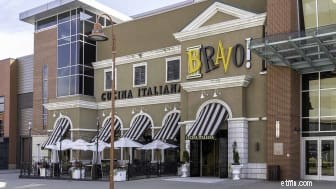
FoodFirst Global Restaurants is the privately held parent company of Italian-themed restaurant chains Bravo and Brio.
The restaurants once belonged to Bravo Brio Restaurant Group, which was founded in 1992. The company went public in 2010 but went private in 2018 via a sale to Spice Private Equity, which renamed the company FoodFirst Global Restaurants. Because of struggles at Bravo and Brio, FoodFirst hired a new CEO in January 2020 to implement a turnaround, with a goal of improving efficiency.
But that turnaround was kneecapped by forced restaurant closures on the heels of the COVID-19 pandemic. FoodFirst Global Restaurants filed for bankruptcy on April 11, writing in its filing:
"The improvement process was radically altered due to the current international health crisis, creating massive restaurant closings and employee losses throughout the country via state ordered shelter-in-place requirements, which exacerbates the need to reduce the Restaurants' footprint in order to maintain the strongest and most viable locations."
FoodFirst had already closed 10 locations permanently in early January and expected to close more as their leases expire.
In June 2020, the Robert Earl Group (operator of Planet Hollywood restaurants) acquired FoodFirst Global's Bravo and Brio restaurants, announcing the deal would see more than 4,000 employees return to work once locations were fully operational.

Unlike many companies on this list, privately held Gold's Gym wasn't struggling prior to the coronavirus pandemic. In fact, the company specifically discounts any prior issues as being a factor in its bankruptcy:
"2019 was our strongest year of worldwide growth in company history," the company writes." No single factor has caused more harm to our business than the current COVID-19 global pandemic and the temporary closures required to protect the safety of our members, team members and communities."
Instead, the May 4 bankruptcy was meant to help the company financially restructure. Gold's said it would permanently close 30 company-owned gyms, but it expected its early 700 global franchised and licensed gyms to reopen.
In July, Gold's Gym announced that German fitness company RSG Group GMBH had won a court-approved auction to buy the chain for $100 million. That plan was approved by a U.S. bankruptcy court in August.

Intelsat (INTEQ, $0.48) isn't one of the kinds of businesses you'd imagine falling to the COVID-19 outbreak. The company helps broadcast and cable TV providers distribute content to customers, as well as provides communications services, via a fleet of 50 satellites.
Intelsat wants to launch new satellite technology that would allow it to sell off part of its C-Band spectrum as part of an FCC airwave auction. That spectrum would be sold to wireless companies as they bulk up their 5G service.
However, "to meet the FCC's accelerated clearing deadlines and ultimately be eligible to receive $4.87 billion of accelerated relocation payments, Intelsat needs to spend more than $1 billion on clearing activities," the company writes. But Intelsat also is servicing nearly $15 billion in debt that previous private equity owners saddled the company with, and the coronavirus pandemic further cramped its financial flexibility.
So, on May 13, the company filed for Chapter 11 bankruptcy protection, which was expected to help relieve some of that debt burden. In fact, CEO Stephen Spengler gave the announcement a positive twist, calling the filing "a transformational moment in the history of our company."
"This will position us to invest and pursue our strategic growth objectives, build on our strengths, and serve the mission-critical needs of our customers with additional resources and wind in our sails," he writes.
Despite being in bankruptcy, Intelsat continued to wheel and deal. In September, the company used $400 million of a $1 billion bankruptcy loan to buy the inflight Wi-Fi business of Gogo (GOGO).
In February 2021, Intelsat said it had reached an agreement with some of its creditors. The proposed plan would cut the company's debt to $7 billion and give unsecured debt holders 95% of the company's new shares. However, as of July, Intelsat still had not emerged from Chapter 11 bankruptcy.

J.C. Penney , one of the nation's largest department-store chains with nearly 850 locations, has long faced the same uphill battle as many of its brick-and-mortar competitors. The launch of its own e-commerce site, as well as experimenting with new store formats, hasn't been enough to reinvigorate the retailer.
Even during the 2019 holiday season, which saw record consumer spending, J.C. Penney's same-store sales (stores and websites open for at least 12 months) declined 7.5% year-over-year.
Store closures due to the COVID-19 pandemic were the final straw. On May 15, the company was forced to seek out Chapter 11 bankruptcy protection, and it also announced a restructuring support agreement that would help it "reduce several billion dollars of indebtedness."
Several days after that filing, the company said it plans to permanently close 242 J.C. Penney locations by 2021.
In September, Simon Property and fellow mall operator Brookfield Property Partners LP (BPY) were reported to be closing in on a deal worth $800 million to buy out the retailer. In December, the deal closed and J.C. Penney exited Chapter 11 bankruptcy protection, avoiding liquidation.

American clothing retailer J. Crew began life as Popular Merchandise in 1947 before taking on its current name in 1983. It initially was a catalog operation, but it expanded into J. Crew retail stores and eventually added the Madewell brand. Then in 2011, private equity firms TPG Capital and Leonard Green &Partners paid $3 billion to acquire J. Crew.
The company known for its "preppy" clothing has been accumulating debt ever since, owing roughly $1.7 billion as of Feb. 1. Declining sales have dogged the legacy brand, but Madewell was growing so much that J. Crew considered "unlocking" value by spinning it off via an initial public offering.
The coronavirus lockdown and resulting store closures derailed that plan, at least temporarily. J. Crew filed for Chapter 11 bankruptcy protection on May 4.
"We are and will remain fully operational throughout this restructuring process," J. Crew said in a statement. "We will continue operating under the COVID response measures currently in place and look forward to reopening our stores in accordance with CDC guidance as quickly and safely as possible."
In September, J. Crew announced it had completed financial restructuring and was emerging from Chapter 11 protection, with Anchorage Capital Group as the majority owner of the company.

Privately held Neiman Marcus is an iconic, luxury retail chain that was founded in 1907. Its latest store, which opened in 2018, was a three-floor, 188,000-square-foot location in Manhattan's Hudson Yards development. In addition to 43 Neiman Marcus locations, it also owns 22 Last Call outlets and two Bergdorf Goodman stores.
But the company has been struggling under about $5 billion in debt, as well as watching customers abandon its lavish department stores for the comfort of online shopping.
COVID-19 forced Neiman Marcus to temporarily close all of its stores, which ultimately was the company's breaking point. Neiman Marcus filed for Chapter 11 bankruptcy protection on May 7, with CEO Geoffroy van Raemdonck writing:
“Prior to COVID-19, Neiman Marcus Group was making solid progress on our journey to long-term profitable and sustainable growth. … However, like most businesses today, we are facing unprecedented disruption caused by the COVID-19 pandemic, which has placed inexorable pressure on our business.”
On Sept. 25, Neiman Marcus announced it had completed its Chapter 11 bankruptcy restructuring. As expected, the company was able to eliminate over $4 billion in debt, as well as $200 million in annual interest payments. The company's new owners include Davidson Kempner Capital Management, Pimco and Sixth Street Partners.
The new Neiman Marcus is leaner with fewer in-store staff. It plans to focus on a luxury lifestyle and online selling (including connecting with its customers through digital services), while also trying to attract new millennial and Gen Z shoppers.

Many of the companies on this list expect to continue operating during and after their bankruptcy reorganizations. But Pier 1 Imports could be done for good.
Pier 1 Imports, which has already closed hundreds of stores over the past few years, has simply been unable to fight the one-two punch of growing online competition from e-commerce stocks such as Amazon.com (AMZN) and Wayfair (W), as well as big-box stores such as Target (TGT) and Walmart (WMT).
Pier 1 had already closed 402 of its more than 940 stores before filing for Chapter 11 bankruptcy protection on Feb. 17, before COVID-19 started hammering U.S. retail.
But the coronavirus nonetheless dealt the death blow. On May 19, Pier 1 announced it was giving up on its previous bankruptcy plans and simply liquidating, shutting down its remaining 540 or so stores.
"This decision follows months of working to identify a buyer who would continue to operate our business going forward," CEO Robert Riesbeck said in a press release. "Unfortunately, the challenging retail environment has been significantly compounded by the profound impact of COVID-19, hindering our ability to secure such a buyer and requiring us to wind down."
Retail Ecommerce Ventures (REV) paid $30 million for the retailer's name and intellectual property in July. In October, REV began operating Pier 1 Imports as an e-commerce site.
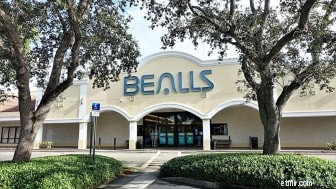
Houston-based Stage Stores operates hundreds of stores across 42 states under banners including Stage, Bealls, Palais Royal, Peebles, Goody's and Gordmans. These stores focus on moderately priced and discount goods, and are predominantly located in small towns and rural areas.
Most of Stage Stores' brands were previously snapped up in bankruptcy sales, and the company had been planning to convert all stores to the Gordmans banner. Stage had a considerable debt load and suffered poor holiday sales in 2019, but it was working on strengthening its financial position and seeking prospective buyers when the COVID-19 pandemic forced it to shutter its stores.
On May 11, it threw in the towel and declared bankruptcy:
"The increasingly challenging market environment was exacerbated by the COVID-19 pandemic, which required us to temporarily close all of our stores and furlough the vast majority of our associates," Stage Stores wrote in a release. "Given these conditions, we have been unable to obtain necessary financing and have no choice but to take these actions."
In August, Stage Stores announced court approval for its bankruptcy plan, which involved liquidating all stores and winding down the company after attempts to find a buyer fell through. In October, Florida-based Bealls Inc. paid $7 million for Stage Stores' trademarks and store names – including Bealls, which Bealls Inc. had previously only been able to use in Florida, Georgia and Arizona.
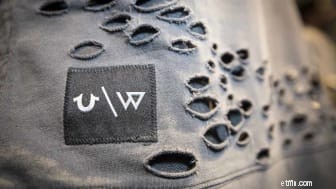
California-based jeans maker True Religion , the California-based maker of high-end jeans, filed for bankruptcy on April 13. That's the second time it has done so in three years; it also filed in 2017 and re-emerged with $390 million less in debt.
Sales of True Religion jeans have been hit by slowing spending at department stores including Macy's and the aforementioned Neiman Marcus. The rise in popularity of athleisure wear was also putting pressure on demand for denim.
The coronavirus outbreak sealed its fate, however. The company was forced to close its 87 retail stores and its wholesaling arm.
"These closings have caused a sudden and unplanned elimination of approximately 80% of the Company's revenue, making a chapter 11 filing unavoidable," Interim CFO Richard Lynch wrote in court documents.
On Oct. 20, however, True Religion successfully emerged from Chapter 11 bankruptcy protection with a reduced debt load and lowered operating expenses. Simon Property Group, the landlord for many of True Religion's retail properties, "was an essential partner in the Company’s reorganization."
The number of stores that will reopen was trimmed down from pre-bankruptcy levels to 50.

Many U.S. shale oil producers were already under financial pressure before the start of 2020. Thanks to low oil prices and high debt loads, 41 oil companies filed for bankruptcy protection in 2019.
More of the same is likely on the way. A report by Norwegian energy research firm Rystad Energy says that if oil prices remain low, more than 240 U.S. energy firms might have to seek out bankruptcy protection by the end of 2021.
화이팅 석유 (WLL, $48.66) managed to make it to 2020, but the U.S. fracker finally succumbed on April 1, when it filed for Chapter 11 bankruptcy protection. That comes alongside an agreement that saw Whiting debtholders acquire a 97% equity stake in the company in exchange for taking $2.2 billion in debt off the books.
"Given the severe downturn in oil and gas prices driven by uncertainty around the duration of the Saudi / Russia oil price war and the COVID-19 pandemic, the Company's Board of Directors came to the conclusion that the principal terms of the financial restructuring negotiated with our creditors provides the best path forward for the Company," Whiting Petroleum wrote in a press release.
좋은 뉴스? Whiting actually emerged from Chapter 11 bankruptcy protection on Sept. 2. Unfortunately, the perceived jump in "WLL" shares was a bit of a mirage. The old WLL shares were completely wiped out and replaced with new shares as of Whiting's emergence. Those shares have done well in 2021, however, up nearly 95% year-to-date.